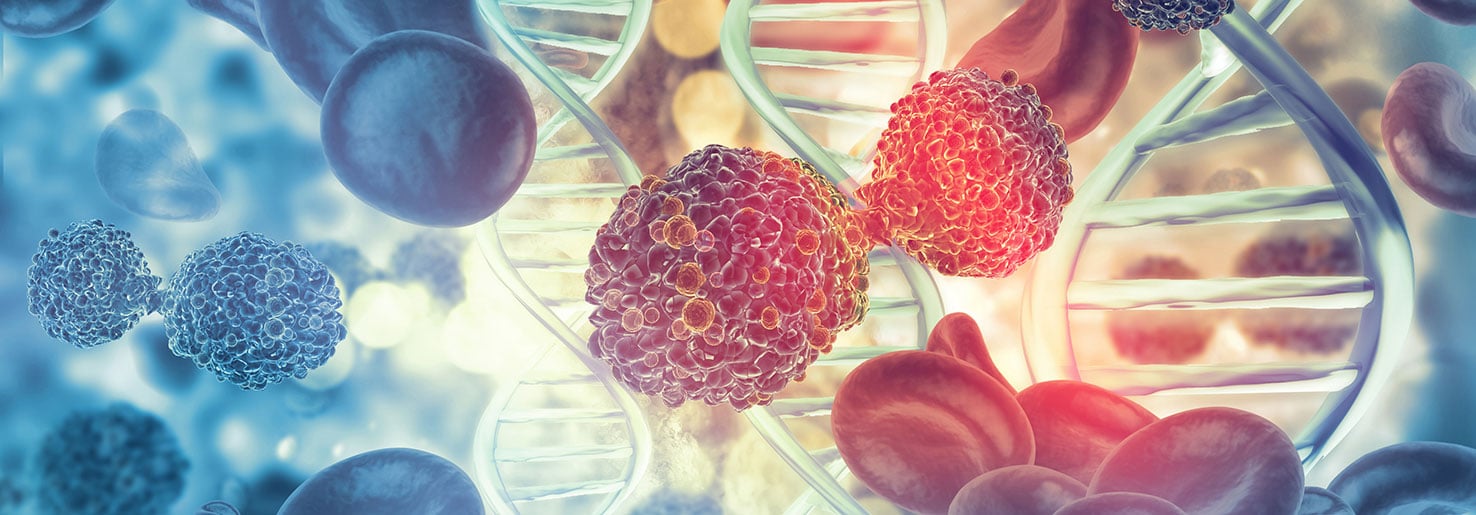
Moffitt's CARDIO-CATCH Clinic for Clonal Hematopoiesis
Advancing Hematology Research at Moffitt
Moffitt Cancer Center's Department of Malignant Hematology is at the forefront of studying hematologic cancer precursor conditions, notably Clonal Hematopoiesis (CH). With a strong commitment to understanding and addressing the implications of CH mutations, Moffitt is pioneering a groundbreaking initiative to revolutionize cancer care.
Unveiling the Risks
Prevalence of CH mutations is 10-20% in older adults, with higher rates in cancer patients. Research conducted by Moffitt reveals that CH mutations detected in cancer patients significantly elevate the risk of future development of Myelodysplastic Syndromes (MDS), Acute Myeloid Leukemia (AML) and cardiovascular diseases. The increased risk, especially in the context of other cardiovascular risk factors (e.g., 4-fold higher risk of MI, heart failure, stroke overall), underscores the critical need for proactive and specialized care for this patient population.
Recognizing the impact of identifying CH mutations in patients both with and without cancer, Moffitt's Malignant Hematology Department is collaborating with solid tumor programs to develop a specialized program called the CARDIO – CATCH (Cardiology - Counseling and Therapeutics for Clonal Hematopoiesis) clinic.
This innovative clinic is designed to cater to the unique needs of patients with CHIP mutations, taking a holistic approach to both hematological and cardiovascular health.

Program Objectives and Goals
The objectives of the CARDIO-CATCH Clinic are clear and ambitious:
- Identify cancer patients with CH mutations.
- Establish a specialized (CARDIO-CATCH) clinic for managing future leukemia and cardiovascular risk.
- Develop interventional therapeutic strategies through clinical trials to mitigate future AML/MDS and cardiovascular morbidity/mortality.
The overarching goals include reducing the risk of future MDS or AML development and improving cardiovascular outcomes in cancer patients with CH mutations.
Leading the Nation in Specialized Care
Moffitt Cancer Center takes pride in being one of the first programs nationwide to offer specialized care and research for patients with CH mutations. This forward-thinking approach reflects Moffitt's commitment to pushing the boundaries of cancer care and addressing the evolving needs of patients. The clinic facilitates interdisciplinary collaboration, enabling seamless integration with solid tumor programs, cardiovascular specialists, precision medicine, molecular hematopathology and genetics to ensure holistic care for patients, thereby underscoring its indispensable role in optimizing patient outcomes and revolutionizing cancer care paradigms.
Looking Ahead: A Comprehensive Screening Initiative
The pilot program ultimately aims to screen 500 solid-tumor patients, predominantly those with breast and gastrointestinal cancers, for CH mutations. A multiplexed workflow will be put in place that will encompass processing and screening peripheral blood, interpreting mutation testing, incorporating testing into the Electronic Health Record (EHR), assessing cardiovascular risk factors and developing a comprehensive database.
Long Term Goals: Mutational Screening
Moffitt's commitment extends to unprecedented research, with mutational screening planned for up to 10,000 archived peripheral blood samples. Once established, this extensive effort will aim to correlate mutations with risks of death, cardiovascular complications, future AML/MDS development, and other critical outcomes.
- Phase 1 of the program will include enhanced mutational screening, bioinformatic analysis, cardiac imaging, sequencing of archived samples and the development of databases.
- Phase 2 will focus on interventional trials with novel therapies and observational studies to deepen our understanding of cardiovascular disease and clonal progression from CH into MDS/AML.

Moffitt's CARDIO-CATCH Clinic stands as a testament to the institution's commitment to advancing personalized and specialized cancer care, heralding a new era in the management of hematological cancer precursor conditions.
If you would like to refer a patient to Moffitt's Malignant Hematology Program, complete our online form or contact a physician liaison for assistance. As part of our efforts to shorten referral times as much as possible, online referrals are typically responded to within 24 - 48 hours.
